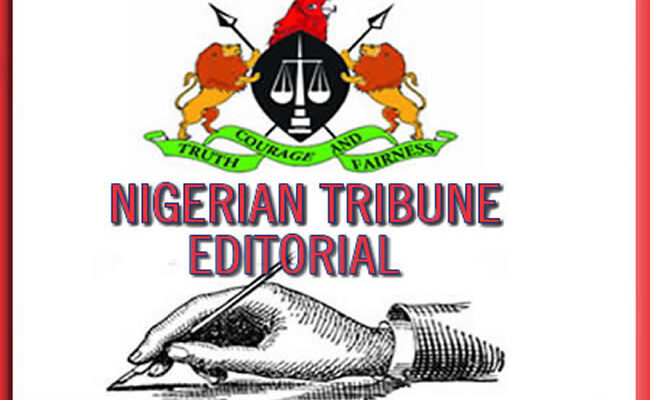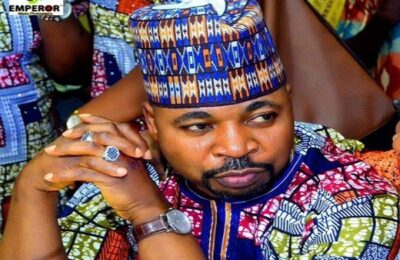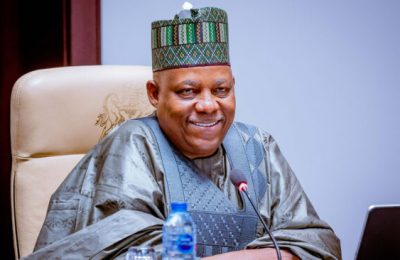THESE are perilous times for Nigerians and the Nigerian economy. When, in May, the Central Bank of Nigeria (CBN) raised the interest rate by 150 basis points from 24.75 percent to 26.25 percent following a two-day meeting of its Monetary Policy Committee (MPC), there was outrage in the country. The committee said it agreed to increase the Monetary Policy Rate(MPR) for the third straight time to rein in the country’s soaring inflation levels pegged at 33.69 percent in April 2024. Said the CBN Governor and MPC chairman, Yemi Cardoso, at the time: “We are beginning to get some relief and in another couple of months, we will see the more positive outcomes from what the CBN has been doing. The committee reiterated several challenges confronting the effective moderation of food inflation to include rising costs of transportation of farm produce, infrastructure-related constraints along the line of distribution network, security challenges in some food-producing areas, and exchange rate pass-through to domestic prices for imported food items.” However, reacting to the hike, the Director-General, Nigerian Association of Chamber of Commerce, Industry, Mines and Agriculture (NACCIMA), Sola Obadimu, observed that the MPR hike posed more challenges for managers of businesses in the country.
His words: “Conventional banking philosophy will encourage banks to charge higher than the prevailing inflation rates when lending money. In the face of rising energy costs, unstable forex rates and associated costs, managing businesses becomes more challenging. Additionally, the issues of revision of minimum wages are there to accommodate. Again, it is quite a challenging time for business managers. As it is, loans are currently available above 30 percent per annum from banks. It is surely neither development nor investment-friendly.” His views were echoed by the founder, Centre for the Promotion of Private Enterprise (CPPE), Dr Muda Yusuf, who said the move would impose additional burdens on investors. As Yusuf observed, most economic operators with credit exposures to the banks had not recovered from previous hikes, as interest rates were already around the 30 percent threshold.
On his part, the president of the Dangote Group, Alhaji Aliko Dangote, recently averred that the increase of interest rate to almost 30 percent would stifle growth. Speaking during a three-day summit organised by the Manufacturers Association of Nigeria (MAN) in Abuja, Dangote said unless urgent steps were taken to address the poor state of Nigeria’s economy, the country could become a mere trading hub. According to him, “Right now, at 30 percent, there is no way anybody can create jobs. If the interest rate is 30 percent, there would not be any job creation because we are actually stifling growth. No growth will happen unless the interest rate goes down.” Flaying Nigeria’s import dependence, which he characterised as one of the greatest banes to its industrial growth and development, he said: “No power, no growth, no prosperity. Similarly, no affordable financing, no growth, no prosperity. There is no industrialization without protection. Ignoring these facts is what gives rise to insecurity, banditry, kidnapping and abject poverty.”

To be sure, the situation is beyond scary. Given the benchmark interest rate, how can businesses grow under this tense climate? What legitimate businesses will yield enough to guarantee profit at that rate? How much turnover will the businesses record and within what time? The rate hikes may be officially meant to contain inflation and trigger price stability, but they are leading to the shutdown of businesses, together with the corollaries of unemployment and the shrinking of the tax base. What this simply means is that the banking system is not working, and that is a verdict on the management of the economy. If banks are technically not lending money but are seen to be fleecing potential investors, then they are mere undertakers.
Just how could the sustained hike of interest rates within an economy that is losing production and productivity be a recipe for success? In case the government needs any reminding, Nigeria’s inflationary trend is not just about too much cash in circulation; it is also a reflection of the dwindling production within the economy. That naturally recommends working hard to improve production and productivity, and not just hankering after interest rates. As it is, the rising interest rate has itself become a disincentive to production, as no viable economic production could be carried out at the current rate.
We expect the government and its economic managers to change tactics and address the fundamental production issues within the economy as a way of arresting inflation and ensuring better life and living for the people. Among many organisations, MAN has not shied away from giving suggestions on the way forward. The government should study its recommendations and act accordingly. Besides, having also acknowledged the adverse effects of the widespread insecurity in the country on businesses, it has a bounden duty to address it and ensure the return to normalcy. Making sure that the country is safe for business is certainly within its remit.
Read Also: 5 benefits of setting healthy boundaries







